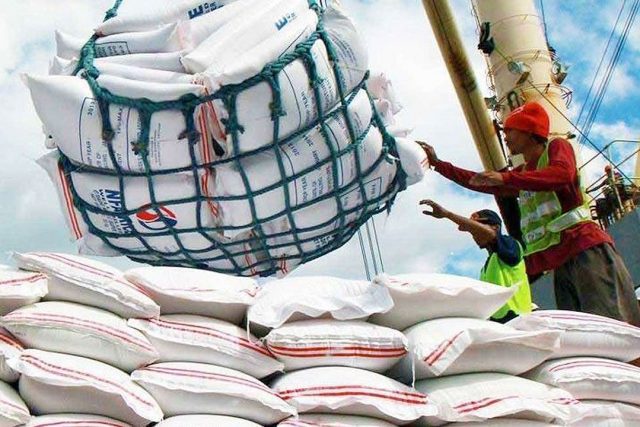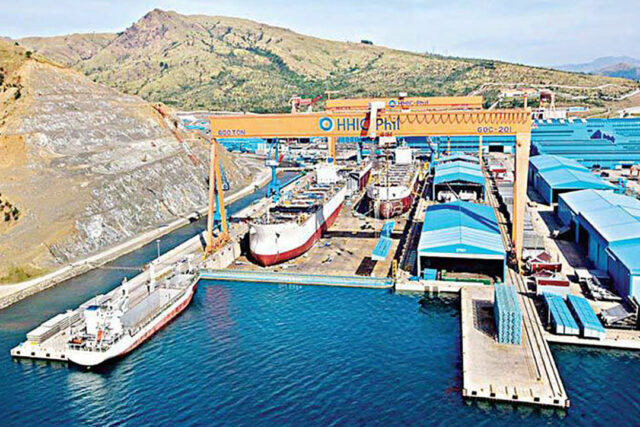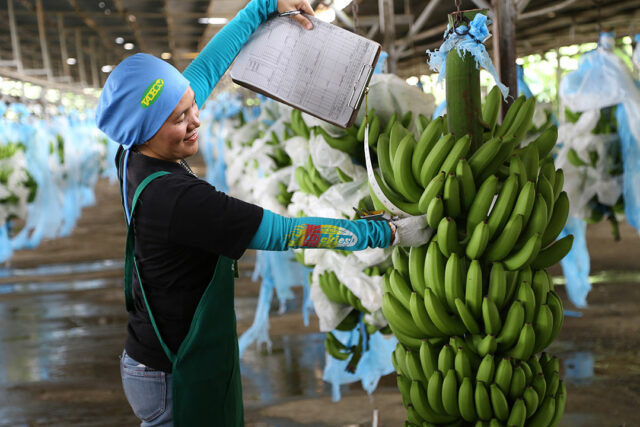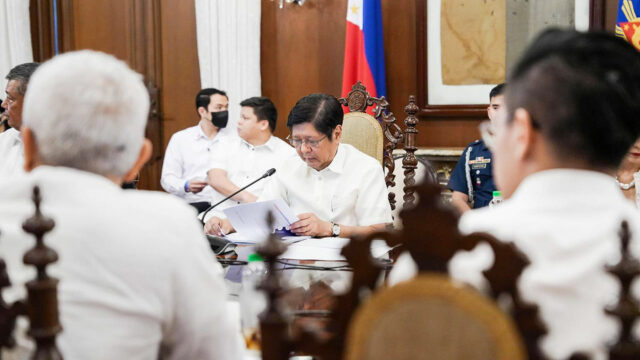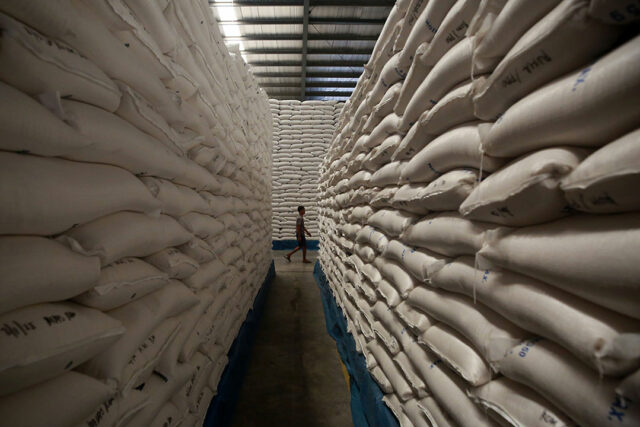By Kenneth Christiane L. Basilio and Chloe Mari A. Hufana, Reporters
THE PHILIPPINES is opting to keep its warships away from a disputed atoll in the South China Sea (SCS) for now, preferring to let its coast guard handle operations to avoid escalating tensions with China, its security adviser said on Thursday.
National Security Adviser Eduardo M. Año said the government is leaving security operations at Scarborough Shoal (Bajo de Masinloc) to the Philippine Coast Guard (PCG), including safeguarding Filipino fishers and enforcing maritime law, but stressed the military remains ready to assist “if needed.”
“As much as possible, we don’t want to be the ones to trigger any escalation,” he told reporters in a phone call. “We haven’t seen anything that would trigger military involvement so far.”
A China Coast Guard vessel collided with a Chinese navy warship on Monday as the former was chasing a Philippine vessel that was distributing aid to Filipino fishermen at the contested Scarborough Shoal.
And on Wednesday, a Chinese fighter jet “intercepted” a Philippine aircraft conducting a patrol flight over Scarborough, PCG spokesman Jay Tristan Tarriela said that same day, adding that there were two US warships spotted sailing near the disputed shoal.
The string of incidents were the latest flare-up in the long-standing dispute between the Philippines and China in the South China Sea, a key global trade route believed to be rich in minerals and oil deposits.
Access to Scarborough Shoal has been restricted for Filipinos after China seized control of the atoll in 2012 following a standoff with Philippines forces. It is a vast fishing lagoon that lies within Manila’s 200-nautical-mile (370 kilometers) exclusive economic zone.
The shoal is located 240 kilometers west of the main Philippine island of Luzon and is nearly 900 kilometers from Hainan, the nearest major Chinese landmass.
Mr. Año said China has been “intensifying” its actions at Scarborough in an apparent attempt to intimidate the Philippines. “But we’re not intimidated as we’re on the right side.”
“We have the legal and historical basis for our position, so no matter what they do, we will not back down,” he said, adding that Philippine forces would not be the ones to provoke conflict in the contested waters.
China asserts a sweeping claim over the South China Sea based on its so-called nine-dash line, which overlaps with the exclusive economic zones of countries like the Philippines, Vietnam, and Malaysia.
A 2016 ruling by a United Nations-backed tribunal in The Hague voided Beijing’s claim, but China has rejected the decision and maintains significant naval presence in contested areas, including the Spratly Islands and Scarborough Shoal.
“We will not be the ones to start any escalation, but we are prepared to defend the country when necessary,” said Mr. Año.
Meanwhile, government monitoring showed a sharp increase in Chinese vessel presence at Scarborough Shoal even before Monday’s collision, with at least 14 Chinese coast guard and maritime militia ships swarming the area two days prior.
There were eight China Coast Guard vessels and 14 militia ships recorded around the atoll on Monday, according to a tally shared to reporters by Philippine Rear Admiral Roy Vincent T. Trinidad, navy spokesman for the South China Sea.
Chinese presence persisted at the shoal even after the incident, with seven coast guard ships and 13 maritime militia vessels recorded near the area on Tuesday.
NOT BACKING DOWN
Also on Thursday, the Palace denounced China’s claims that it is provoking Beijing, asserting that Manila is only protecting its territories as tensions with the world’s second-largest economy intensify in the South China Sea.
“I will repeat what the President has said: we will not back down from a fight, but we are not provoking — we are not [waging] any war against any country,” Palace Press Officer Clarissa A. Castro told a news briefing in mixed English and Filipino. “We are merely defending our rights. It should be remembered that there is an arbitral ruling that clearly sets out our rights in the West Philippine Sea, and that is documented.”
Ms. Castro reiterated that the Philippines will not back down from any fight so long as it is in accordance with international law.
The Chinese state-run newspaper Global Times on Wednesday night said that the Marcos administration is using recent tensions at the Scarborough Shoal to distract from domestic issues and advance political self-interest.
It alleged Manila is scheming to bolster its legal claims in the South China Sea and warned that continued “provocation” would invite “more targeted countermeasures” from Beijing.
According to Josue Raphael J. Cortez, a diplomacy lecturer at De La Salle-College of St. Benilde, the Philippines’ recent incidents within its exclusive economic zone, including a collision and unsafe aircraft maneuvers, highlighted China’s blatant violations of its maritime and aerial rights.
He added that such actions risk triggering armed conflict, breaching the newly enacted Maritime Zones Act and Archipelagic Sea Lanes Act, and contravening international agreements.
“These are crystal clear instances of China wantonly impeding on our sovereign rights both in our maritime and aerial domains,” he said in a Facebook Messenger chat. “Such perils should be effectively addressed, as they also violate our recently enacted policies, Maritime Zones Act and Archipelagic Sea Lanes Act.”

